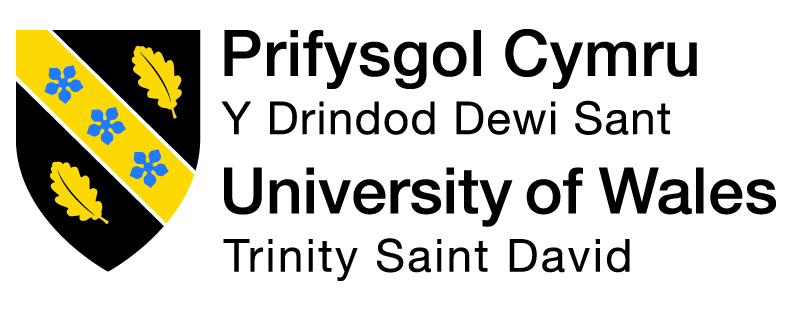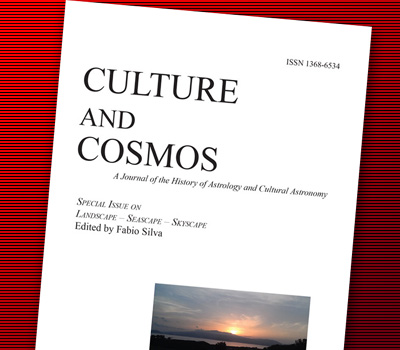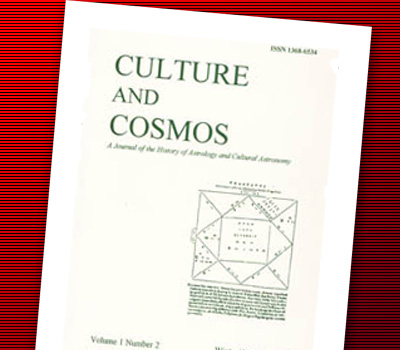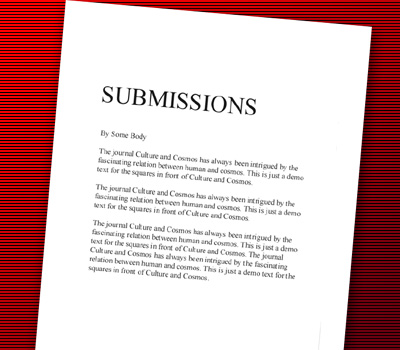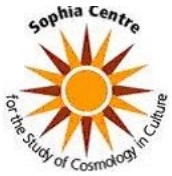We are currently seeking submissions for future volumes of Culture and Cosmos.
Volume 7, No. 1
The Astrology of Galileo: New Measures in an Old Discipline
Bernadette Brady Abstract
Abstract
Galileo is generally accepted as the father of modern physics and historically we tend to place him standing on the threshold of a brave new world of learning, measurement and understanding. Notwithstanding such a position, this paper explores another side to Galileo's work through the examination of a collection of his astrological papers. This investigation reveals that Galileo was standing not only on a gateway of a new science but also on another portal, that of the practice of medieval astrology. From these astrological papers Galileo appears to have the historical honour of being the last recognised or noteworthy practitioner of medieval astrology, at least the last to use certain techniques. He can therefore arguably be considered the 'last man standing' in the Aristotelian-driven astrological tradition.
Yet, as this 'last man standing', in the art of medieval astrology Galileo did reshape his version of this craft. This paper argues that Galileo developed a solar-based astrology which was aligned with the emerging Copernican model of the solar system. Furthermore, Galileo's fascination with motion seems to have penetrated his astrological philosophy, as he ranked the speed and movement of a planet of greater importance than the traditional medieval doctrine of the essential dignities. Additionally, his astrological work shows a unique and consistent form of cross-sign aspecting which may pre-date Kepler's astrological aspect theories.
The paper also defends Galileo against the charge levelled as a result of his famously incorrect prediction in 1609 of the length of life of Grand Duke Ferdinando I, that he was a 'poor' astrologer. Galileo's astrological notes reveal that he was a careful, innovative and experimenting astrologer working with inaccurate ephemerides. Indeed the consistent nature of some of his astrological techniques could justifiably be labelled Galilean astrology. This paper also postulates that Galileo's astrology indicates that astrology was undergoing substantial changes at the dawn of the Enlightenment. Thus astrology may not have changed purely as a result of the pressure of the Enlightenment but also changed in parallel to the Enlightenment.

